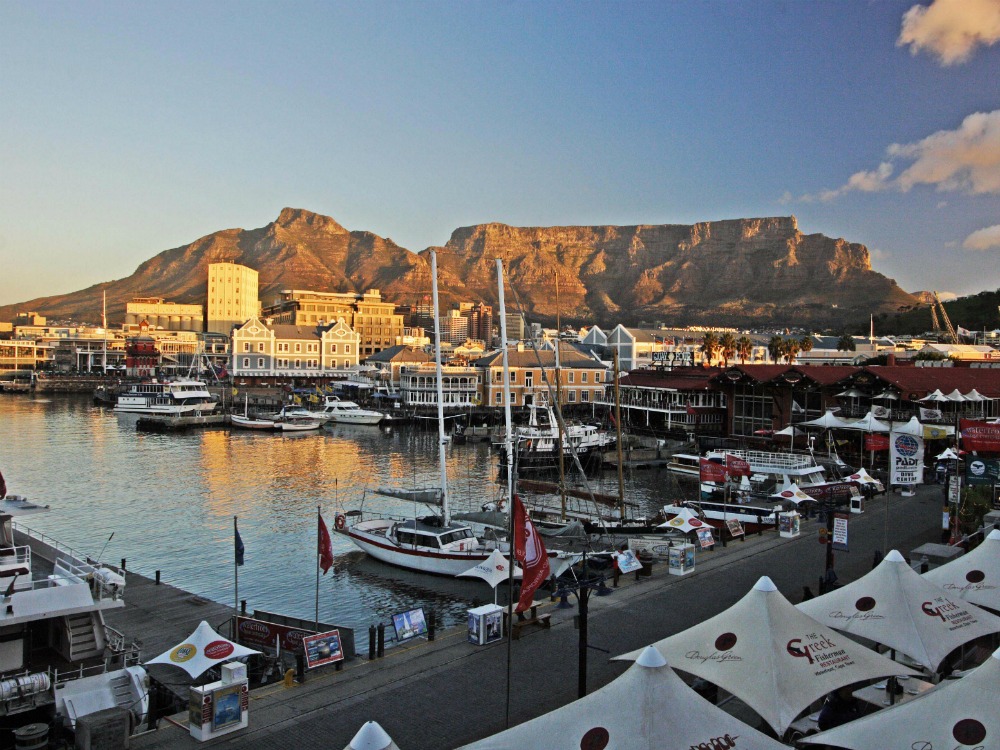Cape Town ranks 24 out of 31 leading cities studied globally, ranking high for its transport system, its business-friendly environment, the cost of living and doing business.
Overall the city comes sixth of the middle-income country cities (MICCs) behind Beijing, Kuala Lumpur, Moscow, Shanghai and Mexico City, and top of Africa.
These are some of the key findings from a report issued by PwC today, ‘Cape Town – African City of Opportunity’. The report forms part of PwC’s bi-annual Cities of Opportunity analysis, which provides a balanced benchmarking of the social and economic health of many of the world’s leading business cities.
Cape Town was scored against 30 of the world’s leading cities across ten indicators of urban success: Intellectual capital and innovation; technology readiness; city gateway; health, safety and security; sustainability and the natural environment; demographics and liveability; transportation and infrastructure; economic clout; ease of doing business; and cost.

The good
Its strongest scores are for Cost, Ease of doing business, Transportation and infrastructure, and Sustainability and the natural environment, with moderate scores in Intellectual capital and innovation and Health, safety and security. Areas for improvement are Economic clout, Technology readiness, City gateway, and Demographics and liveability.
Transportation and infrastructure is one of the city’s strongest areas, finishing top of the MICCs and 14th in the global cohort – ahead of Amsterdam, Milan and Tokyo. Rapid urbanisation and limited space between an ocean and mountain mean enabling people to get around is a competency that requires constant investment. Cape Town has largely achieved this so far, and has plans, that if realised, will unlock transport as a way to tackle the city’s structural and spatial inequality.
Sustainability and the natural environment is another of Cape Town’s better scores, finishing 17th out of 31 and second among the MICCs. For business, a host of green initiatives and job-creation programmes look set to build on Cape Town’s status as a tech hub with new green technologies and associated industries.
However, the current drought has brought the city to the brink of turning off the taps, highlighting the need for serious interventions to improve water resilience.
Ease of doing business is another strong performing area for Cape Town, which reflects the strength of South Africa’s legal and tax institutions. The city also benefits from a business-friendly regulatory environment and low costs, ranking first for Cost of business occupancy.
Indeed, for Cost, Cape Town boasts a much greater quality-of-life to cost-of-living ratio than all other global cities, bar Johannesburg, the difference between the two largely explained by the cost of housing.

Areas of improvement
Cape Town is the bottom third of the global study but the top third of the MICCs for Intellectual capital and innovation. Inequality dampens the city’s ability to compete in overall levels of higher education and maths skills. Despite this, its excellent universities, a supply of well-educated immigrants and a coalition of successful ventures have allowed it to become the continent’s innovation hub – with more than 20 accelerator programmes and incubators.
Health, safety and security is an area where Cape Town does moderately, finishing 21st out of 31 and third amongst the MICCs. The scores describe a city that has a low macroeconomic, political and disease risks, partly driven by the effective city governance and administration. However, providing quality healthcare and personal safety to large numbers of the population remain development areas.
Technology readiness is an area where Cape Town’s low score (29) belies a rising trajectory and a real sense of excitement. Technology is both a major area of success for the city within South Africa – it is home to around 60% of all tech start-ups – and a key strategic area. Its low score in this study can be explained partly by low education levels, which may take time to rectify. In addition, the city’s digital infrastructure is also rapidly undergoing change.
Cape Town comes third bottom (28) for Economic clout. The city comes seventh overall for Employment growth while a look at its foreign-direct investment (FDI) reveals an area of huge potential.
Opportunities for improvement
The report contains a number of recommendations aimed primarily at the city and provincial government, but they also apply to national government, business and civil society, all of whom have an interest in the success of Cape Town.
1. Make education and safety top priorities, even though they are complex.
2. The city should continue to embrace technology and innovation and not be afraid to experiment.
3. As the city embraces ‘water resilience’ in the long-term, it should also be aware of and ready to react to financial, economic and social shocks.
4. In an ever-more connected world, Cape Town should learn from the best cities that are implementing innovative solutions.
5. The city must build on the success of its tourism.
6. Collaboration between government, business and citizens will unlock latent potential.
7. A city-centric government is a win-win.
8. The city should make use of big data to help solve important problems.
9. City leaders should actively drive data-led delivery.
10. In order to realise these opportunities the City of Cape Town must attract and retain the best people.
11. The city should also continue to build on its foundations of urban finance and infrastructure that have given it the strong platform it enjoys today.


